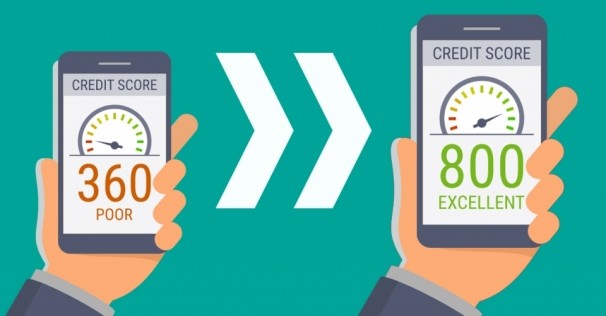CIBIL score is a credit score based on a person’s past credit history. It is an indicator of a person’s credit worthiness and is an important factor when applying for credit. Approval or rejection of a loan or credit card often depends on one’s CIBIL score. Banks grant credit more easily to people with a better CIBIL scores and vice-versa. So, this article covers many tips on how to improve CIBIL score.
How to improve CIBIL score?

If you have a low CIBIL score and you want to apply for a loan or credit card, you can follow these guidelines to improve your score:
Check your credit report:
- You can get your credit report from CIBIL for Rs.550. You can then see which transactions (delayed payments, defaults, etc) have brought your credit score down and take actions to correct them.
- Also, if there are any reporting errors in the information, you can get your credit report corrected by approaching CIBIL and the concerned financial institution. It is mandatory for the financial institution to act on any dispute within 30 days. Once the issue is resolved, your score will improve. You should wait for the dispute, if any, to be resolved before applying for new credit.
- By checking your report regularly, you can address such issues easily.
Pay your credit card bills on time:
- Even one delayed payment can lower your credit score, so it’s best to pay your credit cards bills well in time.
- Don’t pay just the minimum amount due, pay the entire amount due or at least a major portion of it.
- Be aware of your expenditure and spend only as much as you can comfortably pay back by the billing date.
- Have only 1 or 2 credit cards as that makes them easier to manage.
Don’t max out your credit card:
- Try to spend a maximum of 50% of your credit limit.
- Using more than 50% of your credit limit can be seen as lack of spending discipline or too much reliance on credit.
Keep your oldest credit card account:
If you have an old credit card with good repayment history, don’t close that credit card account. That’s because having a good credit history over a long period of time helps maintain a good score.
Pay your loan EMIs on time:
- If you have delayed or defaulted on any EMI payments, make them a first priority and clear them as soon as you can.
- Also, if you are struggling to pay your EMIs, request the bank to restructure the loan so that you can pay the EMIs on time easily.
Avoid settling loans or credit cards:
- Settling a loan or credit card means making a deal with the bank to close that account by paying an amount less than the net amount due.
- While this is possible sometimes, it is not advisable. A settlement is recorded in your credit report and is viewed negatively by banks when you apply for fresh credit.
Don’t reapply for credit immediately if rejected:
- If you have applied for credit and been rejected, that is reflected in your credit report.
- So, if after a rejection, you immediately apply again, the new bank will the see the rejection on your report, your low credit score and may then reject your application.
- In such a case, it’s best to wait for a while, work on improving your credit score and then reapply later.
Avoid too much debt:
- The bank asks CIBIL for your credit report each time you apply for a loan or credit card. These inquiries show in your report.
- Too many such inquiries can indicate credit-hungry behaviour which is viewed unfavourably by banks.
- Also, these inquiries can bring down your credit score.
- Hence, it’s best to borrow only when essential.
Have a mix of secured and unsecured credit:
- Banks view having too much unsecured credit negatively.
- So, you should have a balance of secured loans (like home loans and car loans) and unsecured loans (like personal loans and credit cards).
Be careful if you are a joint applicant:
If you are a joint applicant for a loan, you need to be aware that delayed payments or defaults by the other applicant will lower your credit score as well.
Get a secured credit card:
- If you have a low CIBIL score, you may have trouble getting a credit card. In such a case, you can request your bank for a secured credit card against a fixed deposit.
- Managing that card well and paying your bill on time will help improve your credit score.
A good CIBIL score shows that you have disciplined spending behaviour and can be trusted to pay back your debts. Hence, banks will offer you credit more easily and at better terms.
Please remember that it takes a few months for a positive effect to show on your score. So, take the required steps and be patient.
To read about Personal Loans – Interest Rates, Documents and Comparison, please click here.
Leave a Reply